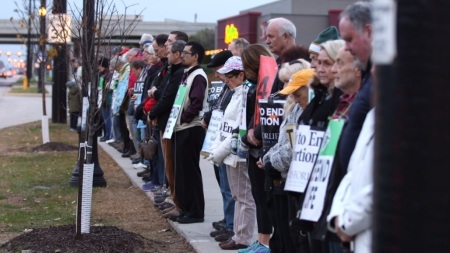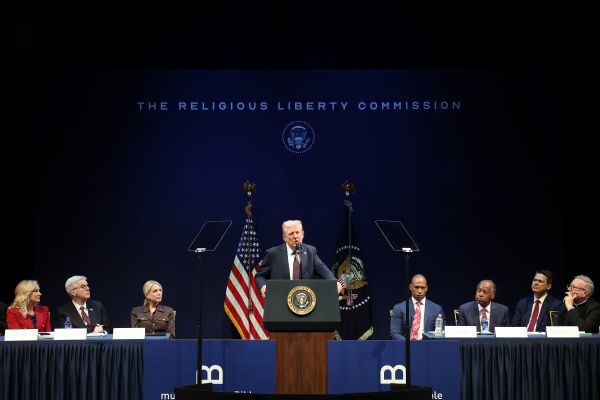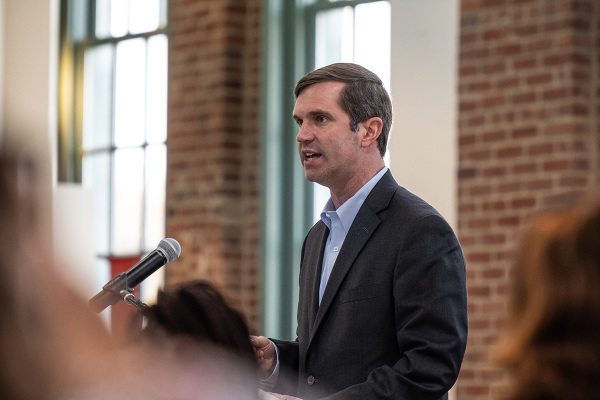127 abortion clinics closed since 2015

Over the last five years, 127 abortion clinics closed, a report by the Abortion Care Network shows.
Forty-one of the clinics closed in the last two years, the report said. Independent abortion clinics execute 58% of abortions in the United States, with Planned Parenthood performing an additional 37%. Physicians’ offices and hospitals perform the remaining 4%.
“Meaningful access to abortion care in the United States depends on independent abortion care providers keeping their doors open,” the report reads. “Unfortunately, independent providers are also the most vulnerable to anti-abortion attacks and legislation intended to close clinic doors or push abortion out of reach. Threats to these clinics are a threat to abortion access overall.”
When abortion clinics close, people often don’t find other ways to get abortions, Michael New, an associate scholar at the pro-life Charlotte Lozier Institute, told The Christian Post. In states where larger abortion companies like Planned Parenthood don’t operate, closed abortion clinics mean saved unborn lives.
Lower numbers of abortions lead to closed clinics, and closed clinics lead to fewer abortions, New said.
“I think it’s a little bit of both,” he said. “When abortion clinics close, abortion numbers go down. Abortion clinics are also subject to the same laws as other economic entities.”
Most clinics closed because of financial problems and pro-life laws that made it difficult for them to operate, the report suggested. Only one abortion clinic remains in Mississippi, West Virginia, Missouri, North Dakota and South Dakota.
Since 2011, state and local governments have passed 479 laws to protect unborn children, according to a poll by Guttmacher. Also, more women today carry their unplanned pregnancies to term, New added.
“I think [lower abortion numbers are] because of three possible reasons. Pro-lifers are changing hearts and minds, pregnancy help centers are helping women or we’re passing pro-life laws. I think it’s all three,” he said.
On social media, pro-life groups celebrated the clinic closures.
“Life. Is. Winning. & we're here for it!” Students for Life tweeted.
“Life is winning! 127 abortion clinics have closed since 2015,” March for Life tweeted.
“March for Life celebrates the closing of abortion businesses and simultaneously the necessary continued growth of the pregnancy care center movement, where women can find real health services and support to face unexpected pregnancies, often for free,” March for Life President Jeanne Mancini told The Christian Post.
In 2017, American abortion numbers dropped to the lowest since Roe v. Wade and increased slightly in 2018. Public opinion in favor of abortion, meanwhile, has risen since 2009, according to Pew Research Center. In 2019, 61% of Americans supported keeping abortion legal in all or most cases, a Pew survey showed.
New said that the Pew survey might not truly capture the public’s opinion on abortion. Other surveys from Gallup show that public opinion on abortion has remained fairly consistent. The biggest recent shift in opinion has come from young people, who now support the rights of unborn babies at higher rates than previous generations, he said.
“The correlation between public opinions and abortion rates is well-documented. There are other things in play as well. It isn’t public opinion overall that affects abortion, as much as it is public opinion among women of childbearing age,” New said.
Overall, the country’s independent clinics has decreased by 34% since 2012, according to the Abortion Care Network report. As of November, 337 independent clinics remain open.
But abortion businesses that receive government funding don’t close when demand for abortion falls, New pointed out.
“I think independent clinics would be a little more dependent on market falls than Planned Parenthood. Planned Parenthood is more able to sustain falls in abortion revenue than clinics are because it receives government funding,” he said.





















